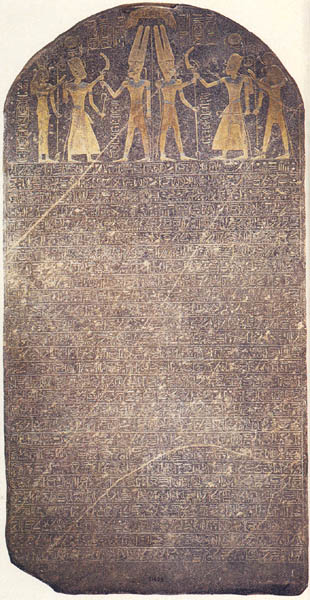Image Details

Jurgen Lieppe
“Israel is laid waste; his seed is not,” boasted Pharaoh Merneptah on this stele dating to 1207 B.C.E., his fifth regnal year. “Plundered is the [land] of Canaan …” the stele says in the lines just preceding the mention of Israel, “Ashkelon has been carried off; Gezer has been seized; Yano‘am has been made into nothing.” The Canaanite campaign occurred at the beginning of Merneptah’s rule, in 1212 B.C.E.
The reference to Israel—the earliest one outside the Bible—occurs slightly to the left of center in the second line from the bottom (see detail). Unpronounced signs, called determinatives, attached to the place names in this section of the stele indicate that Ashkelon, Gezer and Yano‘am were cities and that Canaan was a foreign land; the determinative for Israel, however, indicates that the term referred to a people rather than a place. The Merneptah Stele shows that a people called Israel existed in 1212 B.C.E. and that the pharaoh of Egypt not only knew about them but also felt it was worth boasting about having defeated them in battle.
But what was the Israel that Merneptah was boasting about? Frank Moore Cross believes that they were at the time still a small people, perhaps pastoralists or villagers in the central hill country of Canaan, who were not to coalesce into the 12-tribe league known from the Bible until the 12th century B.C.E.
